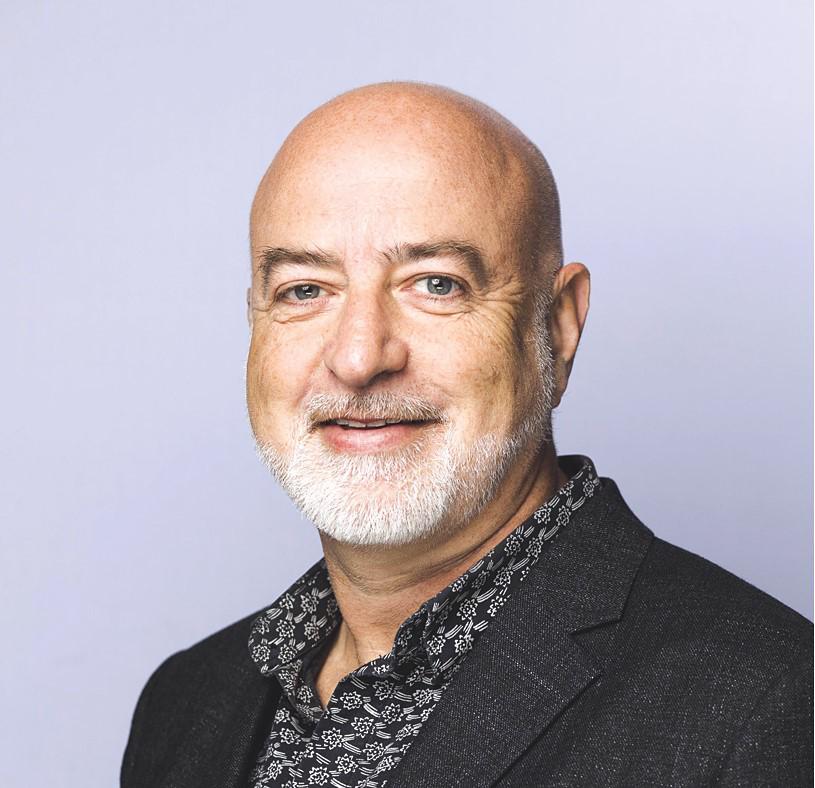Paolo Barilari
I started in 1989, but I was first attending a Spanish course in Salamanca, Spain. I was there as a student and there was another famous student in the industry there, it was Rene de Jong . Antonio was the big boss and Rene was the second big boss. So, you know, you’re happy with your Spanish course, a fantastic, wonderful experience. You go back again and then you think you want to go back again, but not any longer as a student.
I was already mature, I was 23 or 24. Then I spoke to the director of the school and I asked him, “What if I bring you a group?” He told me, “Then you become an agent.” I thought “Wow, I’ll become an agent.” That was it! So, in 1989, I started the first group and for many years I only worked in Salamanca – only one school, one destination and one language. And then, maybe [in] 1994, I thought it was time to have a larger offer. So the idea was that, after having experienced myself how nice it was to attend a course, I thought, “This is the perfect product to sell and this is the perfect way to keep myself in this nice atmosphere, even if I’m growing older,” which was the right choice.
Expansion
After a few years of promoting successfully, I must say for that time, [with] Spain and Salamanca, I thought I had experienced enough and started looking for other destinations. Then I decided London, Malta, New York and one of two university towns in England – either Oxford or Cambridge. We are talking about 1991, internet was not there yet, so the idea was just to browse some telephone directories and call the schools.
Then I started working with Rennert International – New York, inlingua Malta , Studio Cambridge and Frances King School of English . These were my first schools.
For example, Garth came to my little office then, and I remember it was summer, very hot, and he introduced me to Frances King, but at that time they had several centres in London – not only one. And he convinced me so much I said, “I’ll come and visit the school and work with you.” Still, I am happy with the choice, it is a very good school. So I expanded then. The agency had another name before, it was called I Centri.
In 2000, I had been foreseeing that internet was coming to have an element of impact in the industry, then I opened Lingue nel Mondo – an online agency – having a lot of schools with a lot of prices and selling it without mark-up was new for the Italian market. I had been running parallel[ly] the two businesses for several years until maybe 2009 or 2010, [when] I decided it was time to stop the regular face-to-face, old, traditional way of the agency and just work online. I am completely online [now].
I [had] been doubting if this would have meant to lose some clientele. And also the fact that you have not the contact like that, but [it was] necessary, I think. So it made us be more and more in contact with the students – really pampering the students, calling them, [checking] everything is okay, [that they are] ready with their luggage, check the passports.
So there is still contact, but just not in an office?
Almost nobody books without calling us. There are a huge number of emails and telephone calls before they decide to book. I always say that the one that books a general English two-week course [with] homestay, it is a miracle and it is an exception, and we will give this course for free because it is no job for us. Because the Italian market is a market of exceptions. Forget standard [courses], everything is very much personalised.
Changes in the industry
It is much more international. When I started, some countries, they were not bringing agents to workshops. A lot of Eastern European countries, I remember when they first arrived, they were shocked by the huge number of people and so on. But they learnt very quickly and after a couple of years they were perfectly integrated and perfectly professional.
And also there is a trend, although I think, with big schools and with big agents, they are very essential to the market, this is an emerging trend. Bigger schools [and] chains. And also agencies, they are bigger. And schools, they also run agencies. In a way, the trend I see is super stressy marketing departments because before we only marketed in a couple of ways, and now we have several tools, and every tool is important and relevant when you have to keep an eye on so many different means of communication.
And a lot more competition [for agencies] and also many schools competing directly into the national markets in different ways. Some nicely accepted and some, a [few] more, not friendly to the agents.
There are some ways to compete in a foreign market that are accepted, because this is the way it is now, but I think the role of the agent is simply a key role. We deal with humans, and if you come to me and you want a course in New York or London, they say that in London there are 30 good schools and 10 top schools, but there is only one good one for you. There is only one that is the best for you.
Probably, myself as an agent, I am able to tell you one school is very good, but you should go to this other school. Why? Because you will find people in your sector, your age, you can have lunch with the teachers.
And, not taking anything away from the first school, only the agent can do it, because both schools on their website and their promotional material, honestly enough, they say they are very good, but there is a very good one that is better for you. As agents, we should push this message and say to the students: “You still need an agent.”
Proudest achievements
I am always proud when a happy student is coming back and calling me and saying it was wonderful. This pride I can share with the school and say, “Listen, the student came back and he is super happy with the school”, so I am proud when I have feedback and I have been working well. [Plus], I have been President of the Italian Association, [and] I am now President of FELCA – I am happy. I cannot think of anything else that gives a reward to you for the job you’ve done than [when] someone says, “Excellent choice!”
FELCA plans
I have three points. One point is more communication. So, to let people know what FELCA is, because we have been in this industry for 20 years, but I still sit with a school here [ST Alphe Spain] and I say, “I am from FELCA, you know what FELCA is?” And they say “Erm…hmm.” And this is terrible because everybody should know what FELCA is. Then, having a newsletter that we send to all of the FELCA members and also to all of the Gaela – Global Alliance of Education & Language Associations schools. It keeps them a little bit informed [about] what FELCA is.
The second is to establish a constant channel, or communication, with GAELA, because I believe there are so many things we do perfectly well, agents and schools together, so there are some practises that are good [and] that we should reinforce and keep. But there are also some friction areas between agents and schools and we should work in a way that these friction areas are smoother, and [then] maybe we can solve some problems that are not particular problems but general problems with the school/agent relationship.
The third thing is, FELCA is divided into blocks – Europe, Latin America, Asia and Pacific – and the idea is to have more and more regional meetings to go on because we meet every year at Alphe, then the FELCA board is meeting [on] Skype let’s say every six weeks. It’s difficult – location[-wise], you’re talking and someone cannot hear you well.
So, the idea is that we have the first ever European meeting officially set up like this with six nationalities. We decided spontaneously to see each other every quarter. So probably we will do this [ST Alphe Spain], Alphe Istanbul, then London, then ICEF Berlin. This will keep us in contact, and maybe we can develop something. So, we have three targets now for FELCA European meetings and we will continue working with that and update on the situation in Istanbul. So it is communication, working with schools and regional meetings.
Lessons learned
Yes, I can say one lesson I learned myself is, when you choose a job, choose the job you love so you will never work one day in your life. The second is that this industry is an energy-packed industry and you should transfer this energy to your clients. The other thing is, if you want to work in an easy way, just sell what you believe in, be transparent and choose the best-quality courses because it will give you less problems.
Never go for what is a temporary target of gaining more money or having more commission, or squeezing the cheapest price from the school. Aim for quality because quality, in the end, pays. It is [about] energy, happiness and quality.
Paolo Barilari is the President of Felca .

